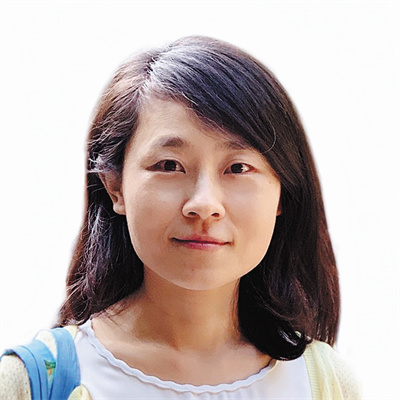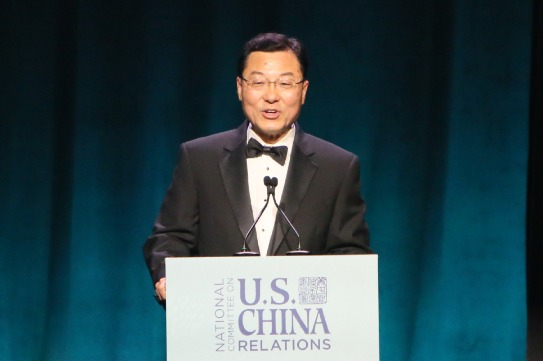Misassumption reveals Chinese-language boom


During my flight to Lima for the APEC meeting, a simple mistake about my profession sparked an unexpected discovery about Peruvian students' enthusiasm for Chinese language and culture.
A Chinese construction company manager, thinking I was a Confucius Institute teacher, approached me about recruiting student volunteers. His assumption wasn't entirely off the mark, because 22 years ago, as a graduate student in Beijing, I taught English at a night college.
The serendipitous mistake brought back fond memories of my teaching days and piqued my curiosity about Chinese-language learners in Peru.
My curiosity was quickly rewarded at the APEC 2024 International Media Center. I asked the information desk about any Chinese-speaking volunteers. Moments later, an exuberant young lady, wearing glasses and an APEC volunteer uniform, appeared before me.
This was Ibeeth Medina, a junior studying international relations at Pontifical Catholic University of Peru. She spoke with evident pride about her university's Confucius Institute, boasting, "My teacher was trained at the prestigious Peking University."
Having studied Chinese for 10 months, her enthusiasm wasn't dampened by the language's challenges. "The more I learn it, the more difficult it gets," she admitted, yet she sees those difficulties as stepping stones toward her career goals.
"I see growing interest in Chinese. I think three in 10 students at (Pontifical Catholic University of Peru) are enrolled in Confucius Institute programs," Medina said, reflecting a broader trend at Lima's universities.
At Ricardo Palma University, another Confucius Institute has developed specialized programs combining language courses with cultural workshops and internships to meet the surging demand.
"Peruvian students are increasingly recognizing the value of learning Chinese, driven by various factors such as the growing economic ties between Peru and China," Cecilia Tello, director of the Confucius Institute at Ricardo Palma University, told me.
The Chancay Port project, backed by Chinese investment, has catalyzed interest in Chinese studies among Peruvian students, encouraging the institute to align its education with emerging economic opportunities, according to Tello.
"The announcement of the Chancay Port project has indeed sparked increased interest in Chinese language and culture studies among Peruvian students," said Tello.
Responding to those developments, the institute has expanded its offerings to focus on business language skills, business etiquette and negotiation practices.
Tello explained how Chinese-language proficiency opens doors to opportunities in international trade, logistics and management roles.
"Understanding Chinese culture enhances cross-cultural communication skills, which are essential in today's globalized work environment," she added.
The practical value of those skills was emphasized by the local project manager at Power Construction Corp of China, who initially thought I was a Chinese-language teacher. His company, a major infrastructure project contractor, has expanded its operations in Peru with projects.
Local hiring dominates the company's workforce. Only a small number of Chinese employees remain on site for supervision and training, according to the manager.
"We need more than just language skills," he told me. "We're looking for technical and business skills as well, and we plan to increase local hiring in the future."
As Chinese companies expand their presence in Peru, enthusiasm for Chinese-language learning has grown. When I first visited Lima more than nine years ago, I would encounter young college students working part-time in tourism and hospitality who could offer basic Chinese greetings and share knowledge about kung fu or Chinese New Year celebrations.
Today's students, exemplified by Medina, demonstrate deeper engagement. "I'm interested in economy, especially China's entrepreneurship and innovation," she said, adding that she is looking forward to an exchange program in China next year that she hopes will broaden her perspective on international relations.
Her enthusiasm reminded me of my former students from two decades ago, who had that same spark of determination in their eyes as they grappled with a foreign language, knowing it could change their lives.
Looking at her face brimming with hope, I found myself imagining a classroom full of aspiring Peruvian students. Perhaps being a Confucius Institute teacher would be a rewarding role as well.





























